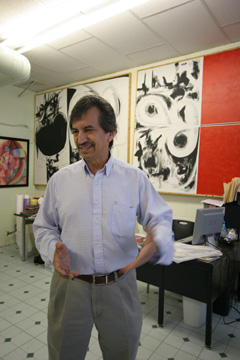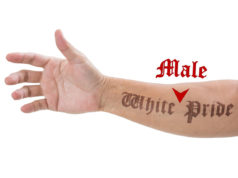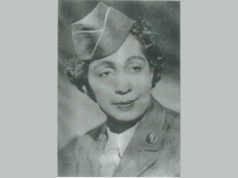 Plenty, say Hector Carillo and the executive board of LULAC’s District 21. The executive board members of Fort Worth’s LULAC district — who in essence would be local hosts to the national meeting — find themselves in the odd position of opposing the bid to bring the convention here. This conflict developed because a Dallas LULAC member — who’s also an employee of the city of Fort Worth — nominated Cowtown to host the group’s 2010 national convention without consulting the local board members. Not only are they peeved at the slight, but they also say Fort Worth doesn’t deserve to get the benefits the convention would bring. “Fort Worth is not friendly to their minorities, for many reasons, and should not be awarded the convention,” said LULAC District Director Carillo.
Plenty, say Hector Carillo and the executive board of LULAC’s District 21. The executive board members of Fort Worth’s LULAC district — who in essence would be local hosts to the national meeting — find themselves in the odd position of opposing the bid to bring the convention here. This conflict developed because a Dallas LULAC member — who’s also an employee of the city of Fort Worth — nominated Cowtown to host the group’s 2010 national convention without consulting the local board members. Not only are they peeved at the slight, but they also say Fort Worth doesn’t deserve to get the benefits the convention would bring. “Fort Worth is not friendly to their minorities, for many reasons, and should not be awarded the convention,” said LULAC District Director Carillo.
The fight has put local civic leaders in an uncomfortable position. On the one hand, Hispanic leaders agree with many of Carillo’s points — but not necessarily his tactics. And most would like to see the convention come here if the problems can be worked out. Carillo and the other District 21 board members, in turn, said they were willing to work with city officials, and if their concerns could be addressed sufficiently, they could support the Fort Worth convention bid. But after months of trying, they haven’t been able to get Mayor Mike Moncrief or other city officials to sit down to discuss the problem. In response, they are opposing the convention — and ran an ad in Fort Worth Weekly recently to explain their position. Delegates to this year’s national LULAC convention, to be held in Chicago in July, will decide on the site for the 2010 meeting. Besides Fort Worth, the cities of Grand Rapids, Mich., Albuquerque, N.M., and Atlanta, Ga., are in the running.
Jody Perry, Texas LULAC deputy state director for women, submitted Fort Worth’s bid to the national executive board in February, without contacting the District 21 board. She declined to be interviewed for this story. Carillo said he became aware of Perry’s actions only through an e-mail from the national board. At a meeting they both attended, he said, Perry told the District 21 leaders that “she would proceed with or without their support.” A few weeks later, in April, Perry organized a reception at which she rallied support for the convention bid from several local elected officials, community leaders, the Hispanic Chamber of Commerce, and the Fort Worth Convention and Visitors Bureau. In May, still unable to get Moncrief to discuss the District 21 leadership’s concerns, the local LULAC board bought the ad in the Weekly, laying out the board’s side of the dispute. Carillo said his issues with Fort Worth include the disproportionate percentage of violent crime in Fort Worth’s inner city as compared to neighboring white communities, institutional racism, and the criminalization of the city’s poor youth. And then there’s the Fort Worth Police Department’s decision not to create a dedicated unit to reinvestigate the city’s current 700 unsolved homicides.
The department does have an ongoing cold-case effort, but to Carillo, whose son was murdered several years ago, that has never been enough. Lico Reyes, civil rights chair of District 21 and an Arlington activist, said that although he is extremely sensitive to Carillo’s distress, he would have handled the situation differently. When Arlington hosted LULAC’s state convention in 2005, Reyes said he too felt his city was not deserving. However, instead of digging in his heels against it, he used the meeting as an opportunity to demonstrate to delegates from around the state Arlington’s lack of “minority friendliness.” Reyes said that ultimately the state convention helped to get Arlington on the right track, just as he planned — even though, he said, he personally has been “blackballed” by the city of Arlington as a result. Reyes said if Fort Worth wins the bid, District 21 members have the right to protest the convention. “They can wear red armbands to protest … or they can be part of the convention and resolution,” he said.
Fort Worth City Council member Sal Espino said the breach that this bid has caused within LULAC is unfortunate — particularly, he said, since the organization was formed to bring together Hispanics from across the country. “I am very troubled with these issues,” the Northside councilman said. “I like the idea of the national convention being here, but if District [21] does not support it, I don’t see how it can happen.” He initially thought it would be a wonderful idea for Fort Worth to host the convention, since the city is more than 30 percent Hispanic and since “Fort Worth has made tremendous progress in minority relations in the past 12 years.” A meeting with the mayor might still be possible, the councilman said. And, he suggested, LULAC leaders might also want to meet with Tarrant County prosecutors to seek their assistance on some issues. He said Carillo had every right to buy and publish the ad — “It is American democracy in action.” Carillo and his board met with LULAC national president Rosa Rosales in March. At that time, national and local officials decided that Perry had a right to submit a bid because she is indeed a member — though not a voting member — of a LULAC council in District 21. “I respect Mr. Carillo, but I am against his tactics of taking out a public ad,” Rosales said. “I am optimistic and believe in mediation, [but] there are other ways to go than to involve the public.” However, at the same meeting, it was also determined that the convention should not go to a city that does not have a good record in its treatment of minorities.
Rosales said that the national organization is more than willing to help District 21 on the issues that Carillo raised. “LULAC will try and help the city to get funds for a [possible] cold-case unit. I have spoken to the state director regarding these issues, and they are being reviewed,” she said. Carillo said there were several attempts at mediation before his board decided to buy the newspaper ad, but that city officials did not take the district’s concerns seriously. “We have a right to be obsessed with these issues, because they affect our community and our children,” he said. Several local LULAC board members said they supported Carillo’s position on the convention. Moncrief “would not hear our plea about helping the community. Instead he avoided our meetings and ended up at the bid reception in April,” said Mary Hernandez, District 21 treasurer. Deputy district director Lee Saldivar said, “We are not saying that we don’t want the convention here — we just want an open dialogue with the mayor.” Elia Mendoza, Rosales’ assistant, said she didn’t agree with Perry’s action in leaving District 21 leaders out of the bid process. “This is not a good situation; you have to work with the people in your community,” she said. Perry “has her Dallas LULAC people … she feels she does not need the local district’s support.” She said the local disagreements don’t necessarily bar Fort Worth from winning the convention — but in order for Fort Worth to pull this off, Perry will need to prove to the general assembly in July that the city is working together to make it happen.
Rosa Navejar, CEO of the Mexican American Chamber of Commerce, said her organization didn’t know that District 21 had been left out of the discussion when the chamber agreed to support the bid. However, she said she disagrees with the District 21 board and believes that Fort Worth respects its minority groups. “The city has been instrumental in establishing the satellite office for the Consul de Mexico, and the chamber was completely funded [by the city] to make it possible,” she said. Navejar said she would try to get the mayor to meet with the District 21 leaders once she knows what issues they want to discuss. David DuBois, president and CEO of the Fort Worth Convention and Visitors Bureau, said in an e-mail that the city, with its new hotels, expanded convention center, and lively downtown would be a good location for the LULAC meeting. “We recognize the value [that] … diversity in our city brings to the global meetings marketplace,” he said.











